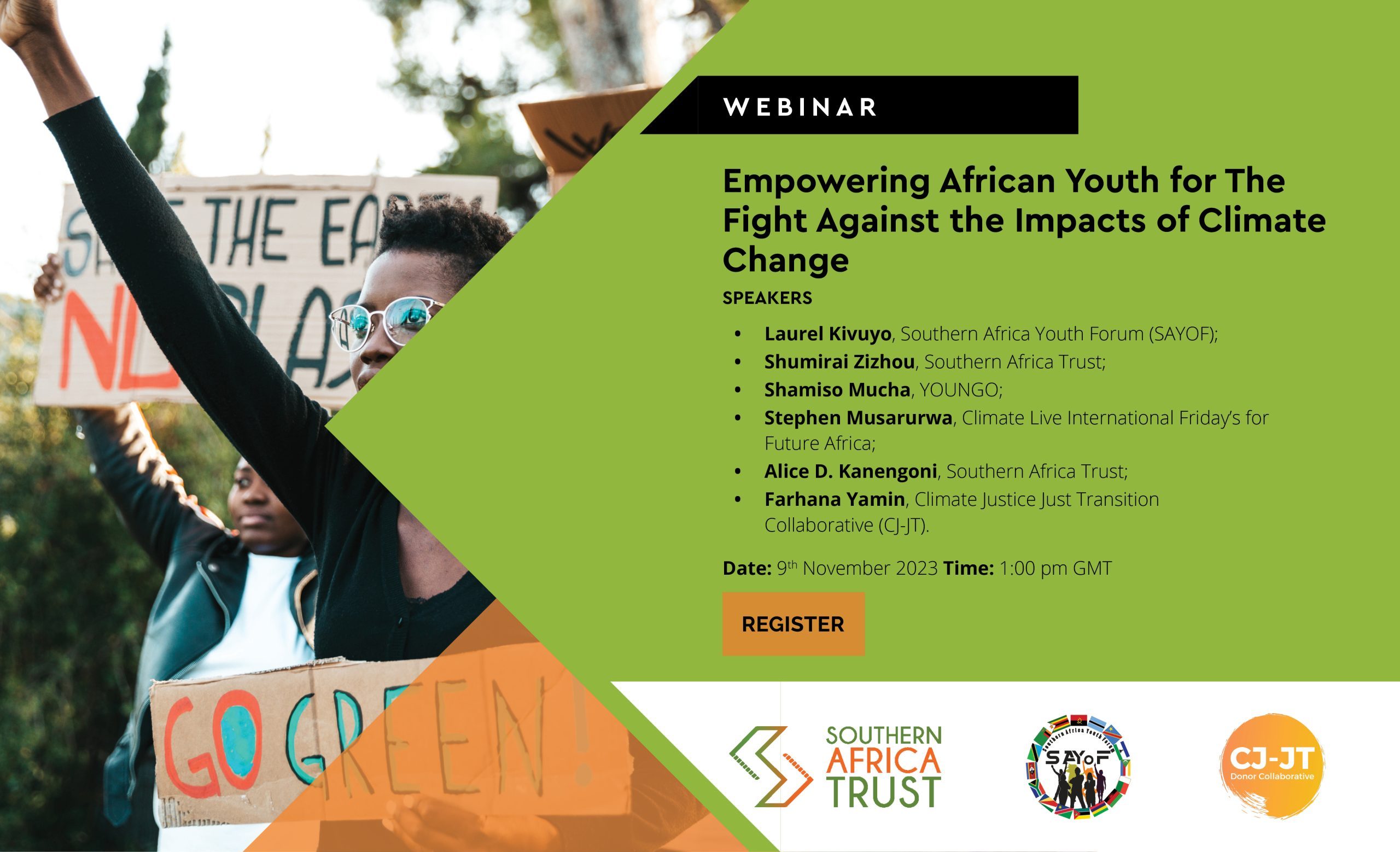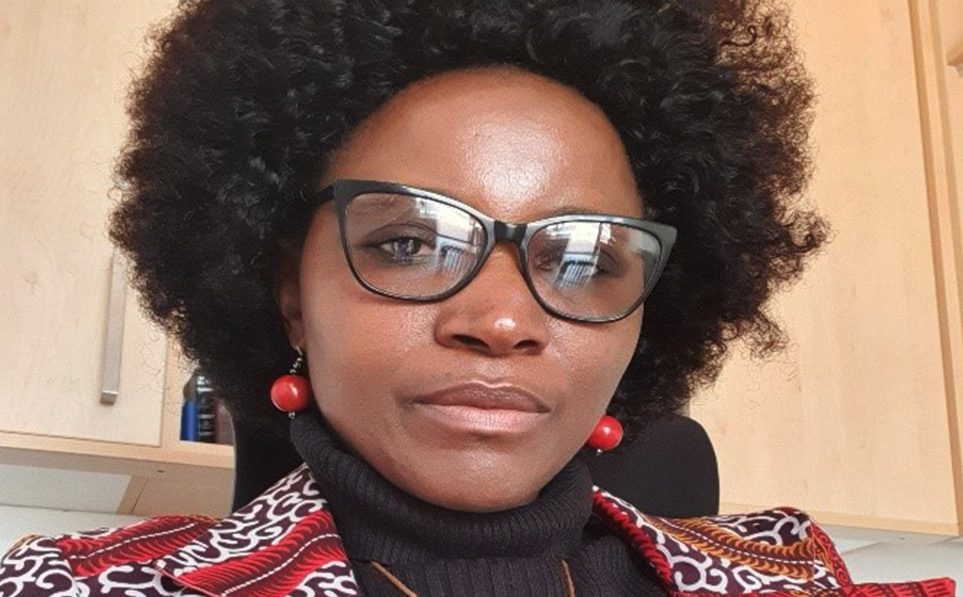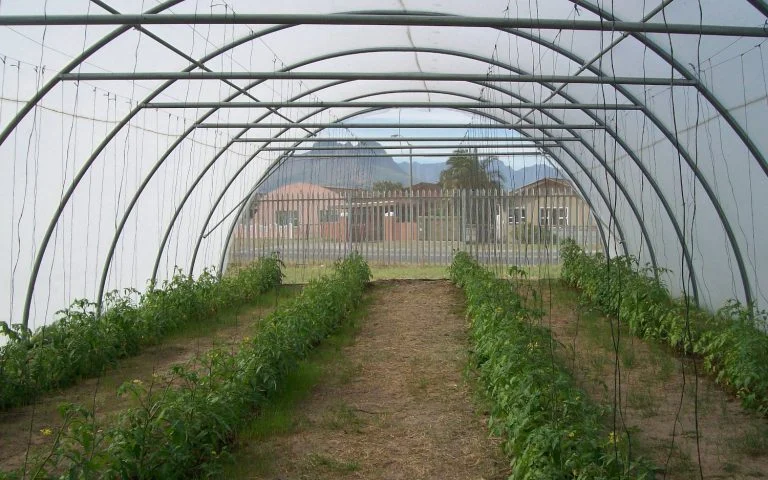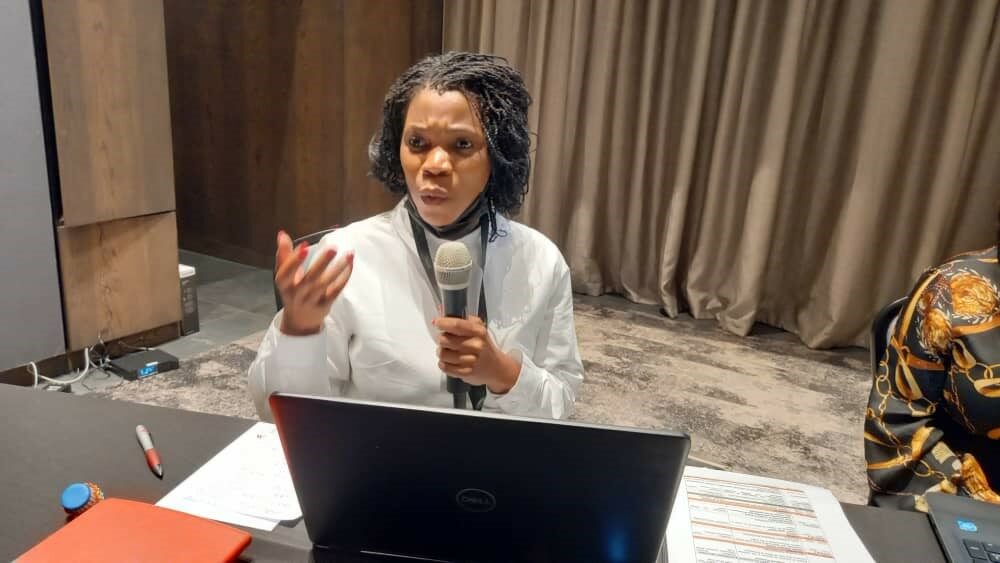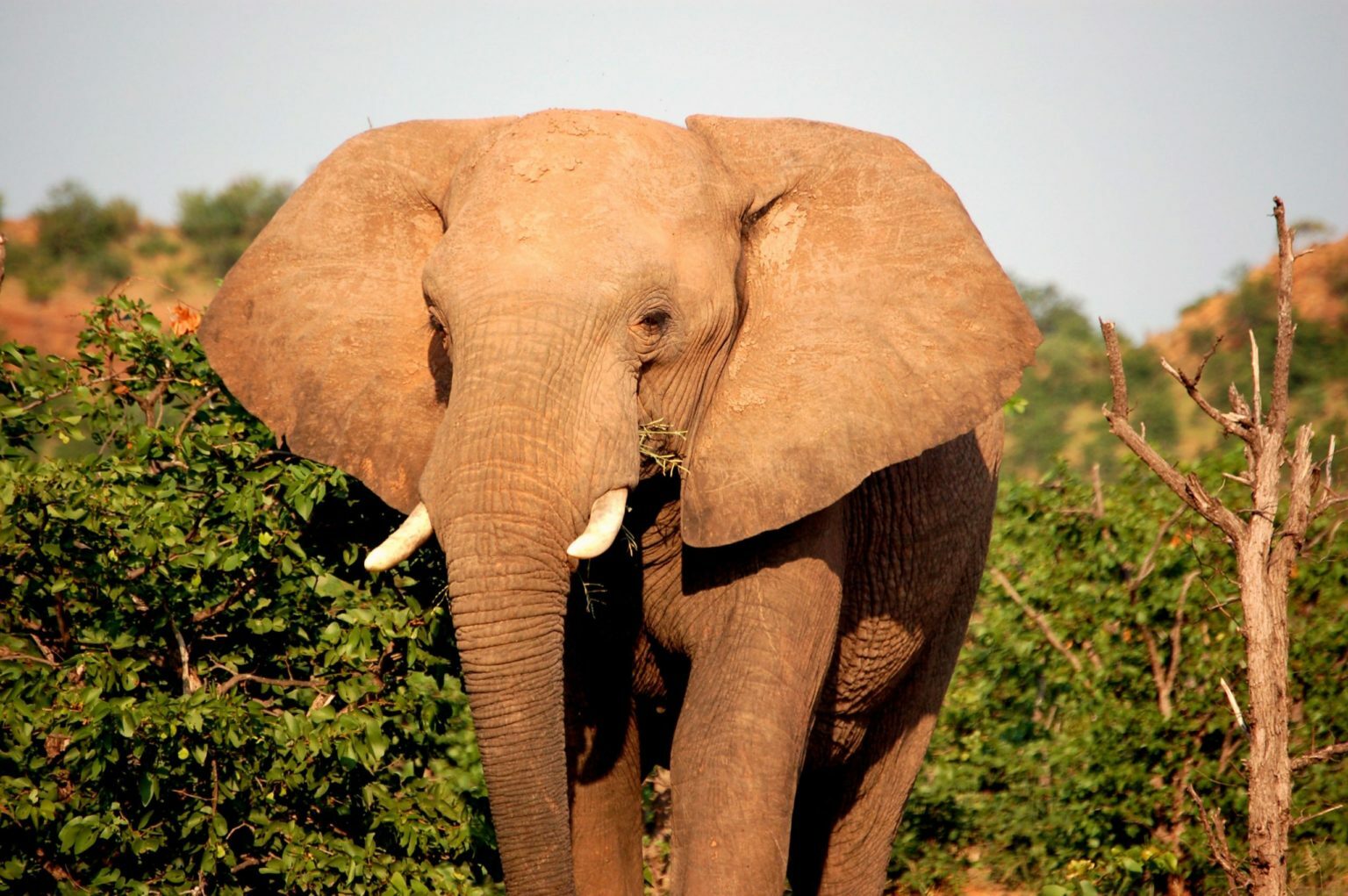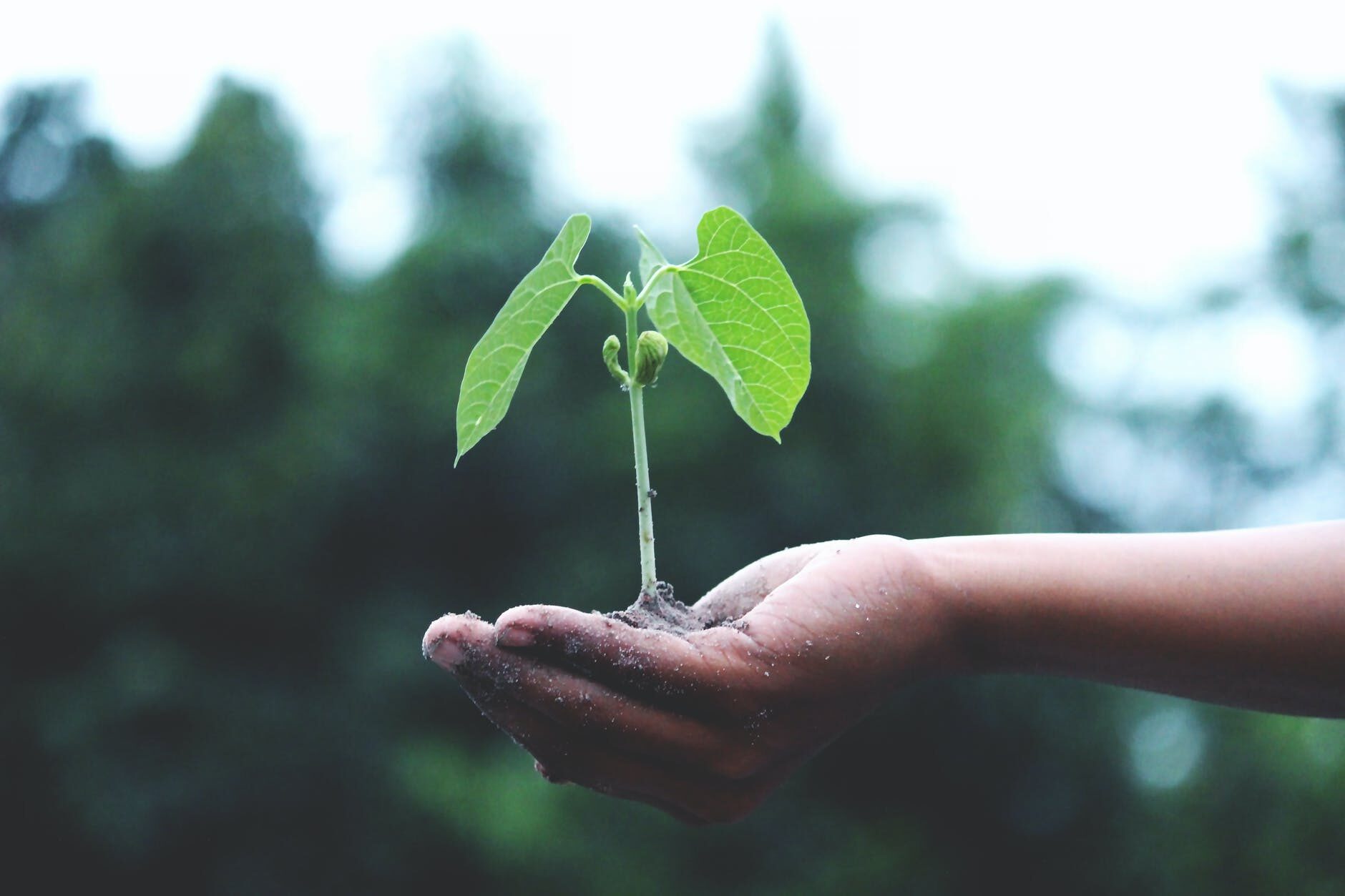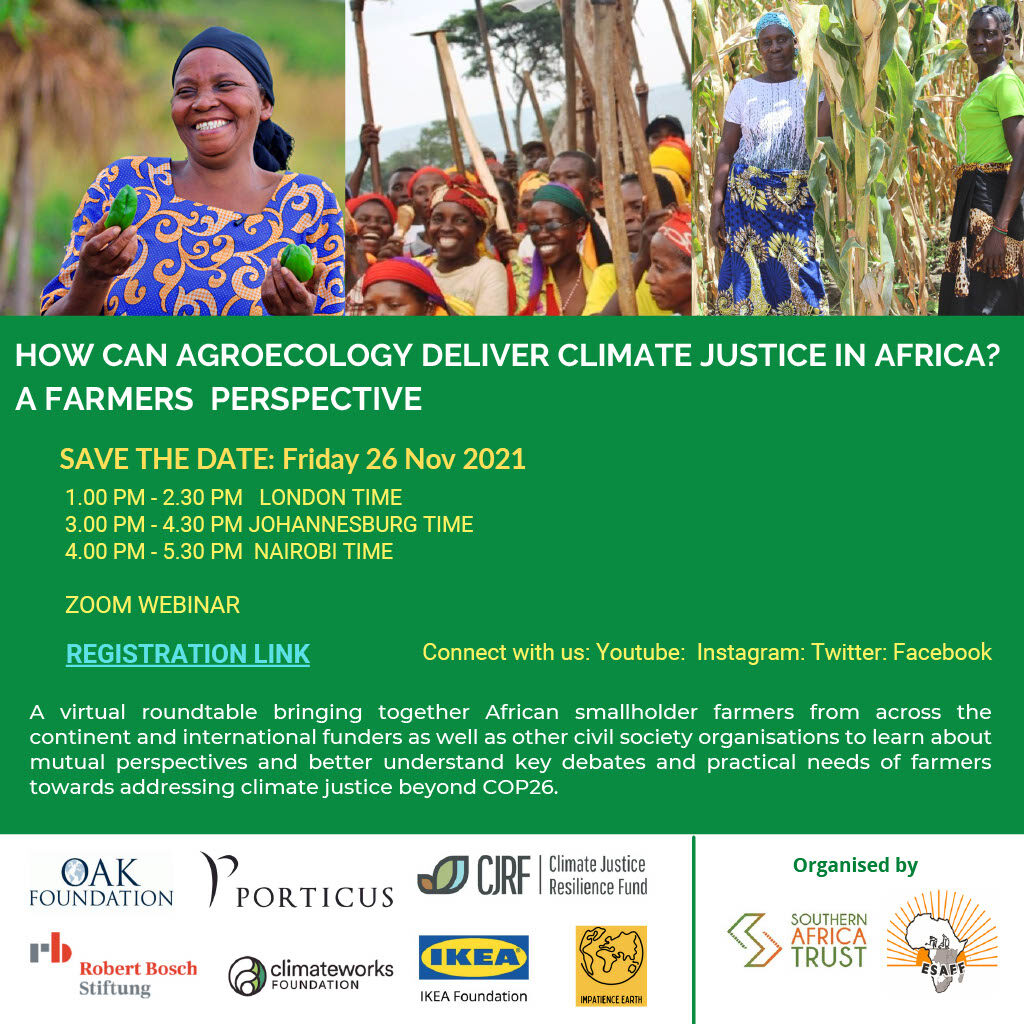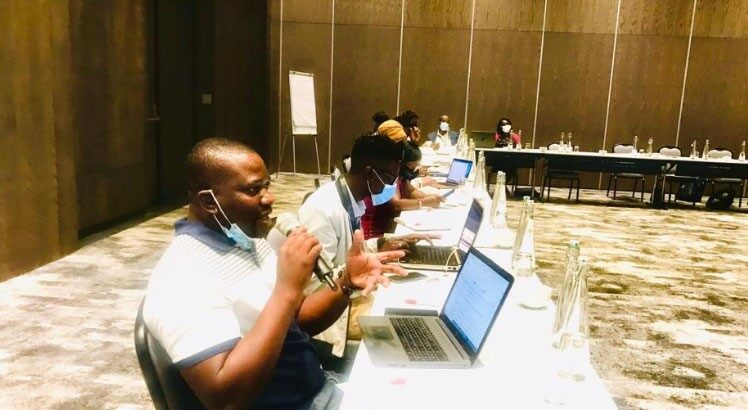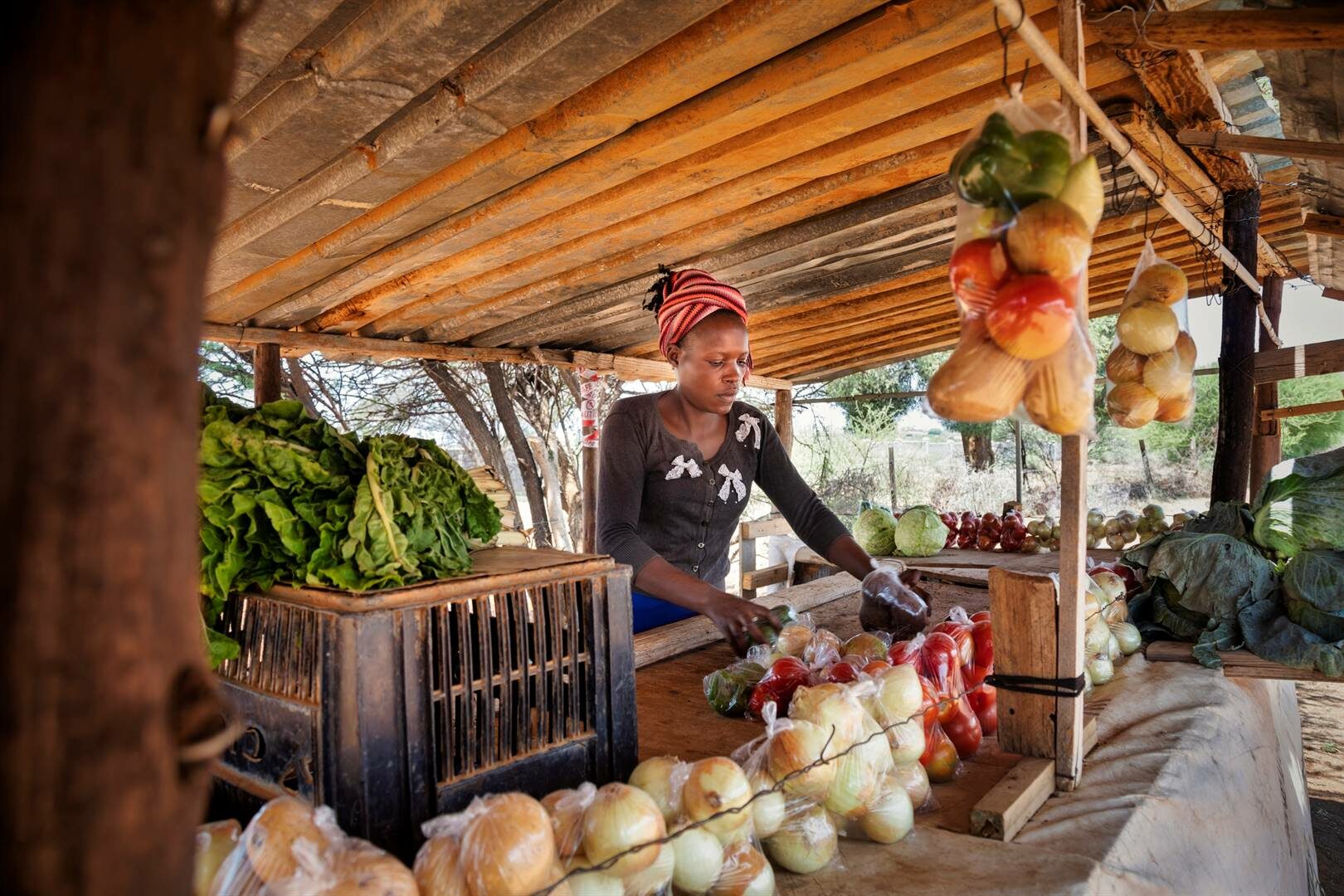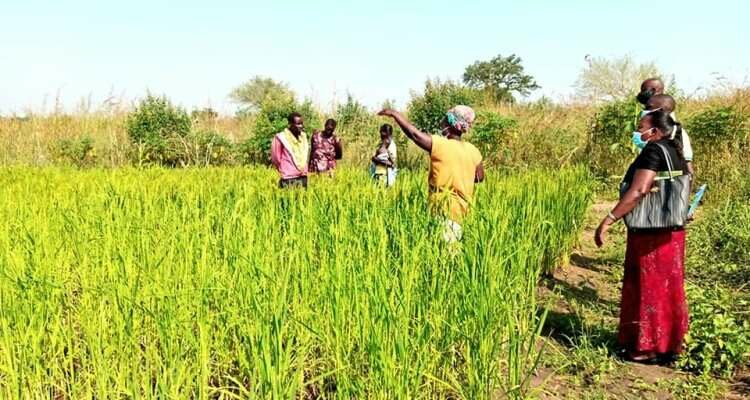Category: News
Announcing the new Chief Executive Officer
The Southern Africa Trust’s Board of Trustees is pleased to announce that it has appointed Ms Alice D. Kwaramba – Kanengoni as its new Chief Executive Officer (CEO) effective 2nd September 2022. The appointment follows an extensive search and selection process with candidates from across the Africa region. Ms Kwaramba- Kanengoni is an enterprising, self-driven and highly motivated Senior Executive, a SADC citizen who is driven to contribute meaningfully towards social justice on the African continent, and globally with solid years of work experience.
She joins the Trust following 18 years with the Open Society Initiative for Southern Africa (OSISA), where she held a variety of executive management, programme and project leadership roles with most recent, Senior Manager: Strategy, Accountability and Learning. Lauded across organizations for her impeccable leadership on gender equality strategy and programme design, programme management, grant-making and impact assessment. She holds the distinction of successfully leading the design and implementation of strategic programs for betterment of marginalized groups, especially women in Africa. Designed and successfully delivered short, medium & long-term strategies, programs and projects on gender equality, social justice and human rights in the global South.
“The Board of Trustees are delighted to introduce Ms Kwaramba – Kanengoni to our key stakeholders and partners, we believe she is a great fit for the Trust with the combination of education qualifications, skills and experience to grow the Trust into an even greater, more successful and impactful organisation”, said the Board Chairperson.
Please join the Board of Trustees in welcoming Ms Alice D. Kwaramba – Kanengoni to the Trust.
Sincerely
Sazini Mojapelo
Chairperson
SA Trust partners with community foundations to overcome challenges posed by Covid-19 pandemic
The Southern Africa Trust is a regional organisation that supports citizen engagement by generating relevant knowledge to inform policy discussions. It facilitates partnerships between policymakers, civil society and private sector groups for joint action to advance the pro-poor development agenda.
It also mobilises and builds agency among the poor, marginalised and vulnerable groups for their voices to be heard in policy dialogue and the ability to hold governments to account. The Southern Africa Trust programme covers the following areas: climate change and natural resource management, gender justice, youth, economic recovery and Covid-19.
With support from Charles Stewart Mott Foundation, SA Trust is working with community foundations in Southern Africa. These are grantmaking public charities that are dedicated to improving the lives of people in defined local geographical areas. With a spike in poverty levels, unemployment, and loss of income due to the Covid-19 pandemic, the role of community foundation has gained more significance in identifying and solving community problems.
In South Africa, SA Trust is working with Community Development Foundation Western Cape (CDF-WC), Initiative for Community Advancement (ICA), Cederberg Social Development Foundation (CSDF), Namkawa Ontwikkeling (NAMKO) and Uthungulu Community Foundation (UCF).
CDF manages to keep their doors open
The Community Development Foundation (CDF) Western Cape is looking forward to a sustainable future after forging a partnership with the Southern Africa Trust.
Executive Director of CDF Western Cape Freda Philander said the foundation, which has the vision “to ensure that ordinary people living in the Western Cape are provided the opportunity to identify their potential, set appropriate goals and achieve extraordinary dreams”, managed to keep its doors open amid the donor funding crisis that came with the Covid-19 lockdowns in 2020. A grant from SA Trust came in the nick of time, as international donors were withdrawing funds from community development organisation at the height of the pandemic.
“In South Africa a lockdown was announced in March 2020, and that is when all the donor support was either cancelled, or they exited. Fundraising initiatives were also either aborted or postponed due to lockdown, so there was a possibility that CDF would close in September 2020. SA Trust came in as a partner and gave us a much-needed grant of R300 000, which was made in two tranches. SA Trust helped us with institutional strengthening and put us back on track,” said Philander.
CDF Western Cape works with 13 other local community-based organisations (CBOs) in Delft, Hanover Park, Heideveld, Mitchells Plain, Khayelitsha, Seawinds and Atlantis, which in turn reaped positive spinoffs from SA Trust’s grant.
By keeping its doors open, CDF was able to provide grants to local community partners, which went towards feeding schemes in the communities during the Covid-19 pandemic. This opened avenues to the local CBOs to raise funds and forge partnerships for sustainability with other donors.
“In Delft, Masithembele Enrichment Centre joined Food Forward, which provides them with monthly food contributions that reach 80 families. They continue to feed about 4 000 children and adults per month from contributions received through local community giving,” Philander said.
“The Alcardo Andrews Foundation in Hanover Park forged further partnerships and managed to feed 8 900 people in the morning and 1 151 in the evening with warm meals. Due to the Covid-19 relief grant made by CDF Western Cape, the Children Resource Centre was able to attract the attention of some donors that gave them more funding, which allowed them to feed 60 children in 11 areas in the Western Cape for three days per week,” she said.
The charitable foundation’s aim is to continue to support communities while taking care not to strip them of their agency. “It’s about demonstrating the strength and power of, by and for the community. It was and still is the trust relationships built over many years, which continue carrying the foundation through crises,” she said.
Philander added that CDF envisaged an ongoing partnership and collaboration with SA Trust, in the form of “focused and meaningful dialogues on social justice and the alleviation of poverty, horizontal philanthropy, peer training and support”.
Namakwa community fell into hard times
Southern Africa Trust has helped several non-profit organisations (NPOs) in the Northern and Western Cape to navigate the unprecedented difficulties that came with Covid-19, with positive spinoffs for dozens of local communities.
SA Trust has assisted local NPOs involved in community development with capacity building in addition to financial support. Namakwa Ontwikkeling (NAMKO) — a community outreach foundation in Okiep — was on the verge of closing down after 28 years of supporting local communities.
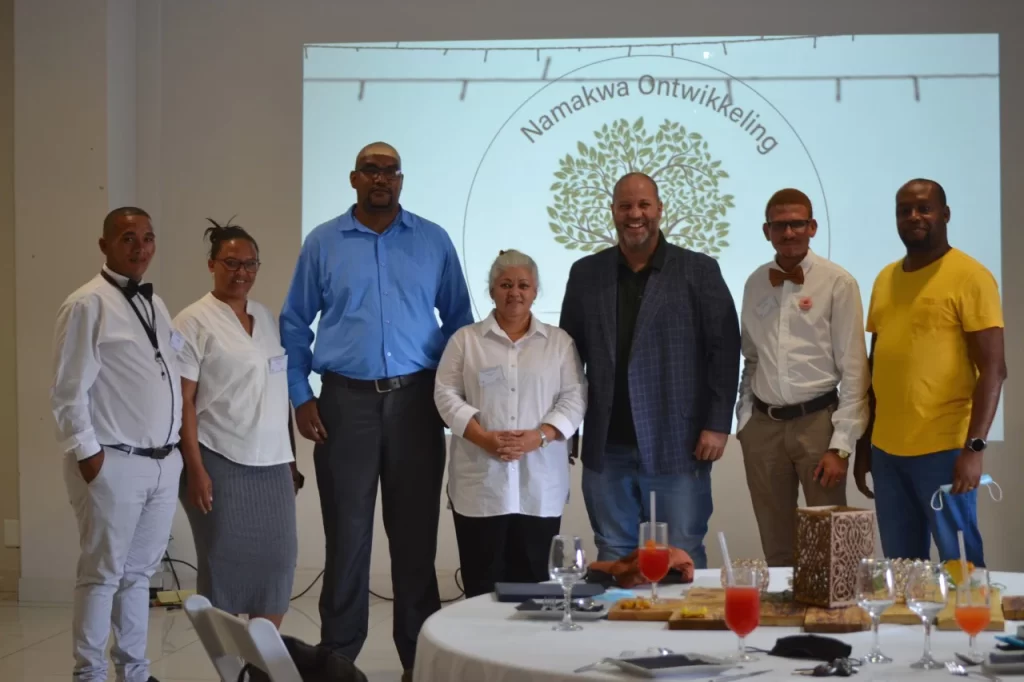
SA Trust has provided financial support to NAMKO, which helps the Namakwa community in Okiep
NAMKO’s Brendon Andrews said SA Trust gave them R425 000 at a time when funding from overseas donors was running dry because of the Covid-19 crisis.
“We are the oldest organisation based in this area. Due to the Covid-19 pandemic, many other small organisations closed down. They got some of their funds from overseas donors, but during the Covid-19 crisis, those overseas companies and donors withdrew their funding from South Africa, and used it in their own countries,” said Andrews.
“SA Trust first supported us with R250 000, then added another transfer of R108 560; the last one was R65 000. But when we also consider training and non-financial support, it adds up to a lot.”
According to Andrews, who is now 40, and has been working with the community since he was 14, NAMKO has three programmes: Inspired Women, Food Sovereignty and the Youth Programme. It aims to address gender-based violence, food security and over-indebtedness respectively with the three programmes.
The Namakwa community fell into hard times after a copper mine that supplied the bulk of employment in the area closed down in the 1990s. The community was then beset with debt, substance abuse and gender-based violence, along with other social ills symptomatic of unemployment and poverty.
NAMKO sadly lost director Quinta Titus recently, and training exchanges facilitated by SA Trust helped them focus on succession planning. “We are busy fundraising, so that we can set up certain targets for certain issues in our community. For gender-based violence, which is a huge factor around here, we’ve established the Quinton Titus Response Fund. But we’re also not just focusing on GBV; we would like other organisations in the community to apply for funding.”
Andrews said the aid that SA Trust has provided NAMKO will have a positive ripple effect on the communities, as the NPO aims to pay it forward to frontline organisations, to empower them and to mitigate the effect of the donor drain.
Youth recreational centres for drug and substance abuse
A rural-based foundation was able to help people who lost their jobs due to Covid-19 lockdowns start their own businesses, after receiving funds from Southern Africa Trust (SA Trust).
According to Jeremy Maarman, Founder and Director of Initiative for Community Advancement (ICA), the foundation received R260 000 in funding from SA Trust, in addition to non-financial support.
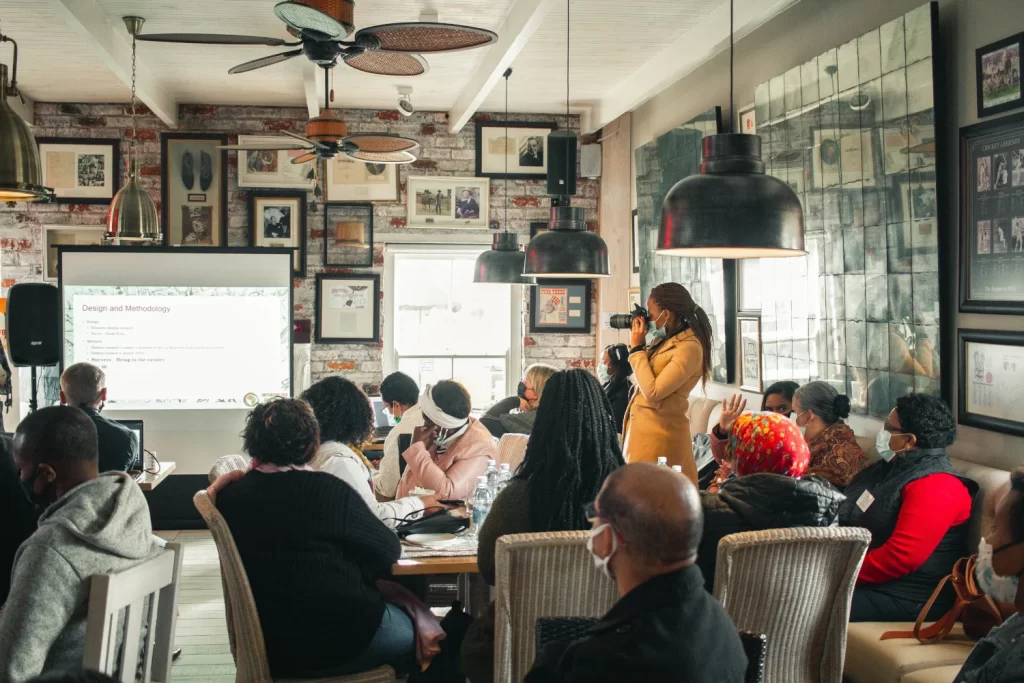
The ICA in Bergrivier is among the many beneficiaries of SA Trust
“SA Trust has been supporting us since 2019 as a capacity-building partner. In 2020 they funded three of our staff members to attend courses at Wits for institutional development. They invested R260 000 in our projects; that funding was received in October 2020.”
The ICA is a small-scale funder of community projects, situated in Piketberg in the Bergrivier municipal area of the Western Cape. The foundation has two active funds: the Bergrivier Youth Fund and the Community Rebuilding Fund.
Anzita Booys received funding from the ICA’s Community Rebuilding Fund, which helped her get back on her feet after she lost her job due to Covid-19 lockdowns.
“I worked for five years at PPC kiosk and due to lockdowns in 2020, I lost my job. I decided I must make a plan. Where was I to get a job during lockdowns?”
Boots used her passion for catering and experience to start her own business. “I registered my business Zita’s Foods and started selling take-aways and platters, and provided catering services. Then I heard that ICA supports small businesses, and I applied for funding.”
Booys got R8 000 funding from ICA and used it to buy equipment and stock. “I bought a deep freezer, a mini oven and groceries, then I got a tender at the PPC kiosk and I am now the owner. It’s almost a year now, and thanks to ICA I am open for business.”
Maarman said the ICA has community-affiliated funds and fund-raises locally. Those funds are distributed for local community issues.
“One of the biggest issues in the rural communities ICA serves is unemployment, which mostly affects young people. The Berg Youth Fund develops youth locally and provides soft skills development and recreational workshops. Idleness can lead to negative behaviours. Drug abuse and substance abuse are huge in our area,” he said.
ICA also has an education fund supported by a dentist who is originally from the Bergrivier area. “Sometimes it is too late to invest in university education for youths. When they go from rural areas to the big city, they can easily be enticed into drugs, and disappear in the system.“The Doctor Somers Education Fund supports beneficiaries from primary school and takes them to well-resourced high schools that offer better quality schooling and career guidance. This allows them to choose subjects in line with their abilities, to curb the high university dropout rate. The support needs to come early on.”
The ICA’s current focus is on getting members of the rural communities in the West Coast to become more actively involved in their own development processes. “We have a contract with SA Trust until September 2021, and we are hopeful their support will continue for another three years,” said Maarman.
Advancing Climate Justice Accountable Natural Resources Governance in Southern Africa
SADC member states urged to increase funding towards social-protection
The Southern Africa multi-stakeholder regional dialogue has today opened in Johannesburg, South Africa with a call for governments to devise ways of mitigating the impact of the Covid-19 pandemic on the marginalized. Opening the meeting, Southern Africa Trust programme coordinator on economic policy development programmes Shamiso Chigorimbo said the meeting aims to discuss the potential long-term effects of Covid-19 on the key economic activities, discuss key policy issues in relation to the recovery among others.
Chigorimbo: Finds ways to mitigate impact of Covid-19
Making his presentation, Gabriel Pollen from the University of Zambia cited the need for governments to increase funding towards social protection initiatives to mitigate challenges faced by the poor community exacerbated by the pandemic. Pollen further called for the need to formulate coordinated policies particularly on trade and the transport sector to ensure the continuation of cross-border trade even during a pandemic.
Southern Africa People’s Solidarity Network regional coordinating committee member, Joy Mabenge, called on SADC member states to increase funding in the health sector and adhere to the Abuja declaration where leaders pledged to commit 15 percent of the national budget to the health sector. About 30 representatives from various sectors and organizations from Southern Africa Development Community (SADC) and beyond are attending the two-day conference taking place under the theme” ‘Are we building back better towards an economic recovery?’
Upholding democracy, human rights and conservation
Tellus mauris a diam maecenas sed enim ut sem. Viverra accumsan in nisl nisi scelerisque eu ultrices vitae. Pellentesque eu tincidunt tortor aliquam.
Vaccine hesitancy in SADC worries policymakers
Delegates to the southern Africa multi-stakeholder regional dialogue have expressed worry over Covid-19 vaccine hesitancy among citizens in the Southern African Development Community (SADC) region, saying the trend will likely derail economic recovery in the region.
The experts made the call on Tuesday in Johannesburg, South Africa at the end of a multi-stakeholder regional dialogue.
There has been a low uptake of the Covid-19 vaccine in SADC members States, including Malawi with latest statistics showing that 933 856 have received at least one dose while 540 186 have been fully vaccinated, representing 4.9 and 2.8 percent, respectively.
Caption: Gondo: We looked at various issues affecting young people.
In Mozambique, 6.5 percent of the targeted population has been vaccinated while in Tanzania only 1.5 percent of the population has been vaccinated. Zambia is at 1.7 percent while South Africa is at 20 percent. However, Seychelles is leading Africa with 81 percent.
Southern Africa Trust (SAT) programme coordinator on economic policy development, Shamiso Chigorimbo, said the problem of vaccine hesitancy requires urgent attention, calling for more awareness in all sectors to ensure that more people get vaccinated and that the region reaches herd immunity.
She said: “Among the issues that came out is vaccine hesitancy, we want to work together and see what policies can be implemented to address this challenge if we are to defeat the virus and get back to normal.”
Southern Africa Youth Forum regional coordinator Misheck Gondo described the conference as a co-creation of ideas which allowed stakeholders to enhanced strategies on how best they can rectify some of the common challenges facing the region.
He said: “We looked at various issues affecting young people in the region and we clustered them within the economic, technological, social and political groups. “
Malawi targets to vaccinate 60 percent of the population or 11 million to reach herd immunity.
In September this year, the country failed to vaccinate 1.1 million to reach the 10 percent target since the vaccination campaign began in March.
Commenting recently on the vaccine uptake, Physicians Assistants Union of Malawi president Solomon Chomba said Covid-19 vaccines have, so far, proved effective and are providing a clear roadmap for economic recovery.
But he warned that if Malawians continue to shun the jab, the country risks being seriously hit by another wave by December this year.
About 30 representatives from various sectors and organizations from SADC attended the two-day conference, which was held under the theme, Are we Building Back Better Towards Economic Recovery?
The participants, among other issues, discussed common challenges facing the region such cross-border challenges, food insecurity and lack of social protection to the vulnerable people
Women in the informal Economy Key Discussion
Introduction
When news about the COVID-19 first broke in December 2019, many countries in the world particularly, African countries did not give it much thought because of the fact that the first cases were recorded in Wuhan China. Which was far away from the shores of the African continent for many this was going to be a virus that would come and go just as many others such the first Severe Acute Respiratory condition (SARs) fever that broke out in the past. Covid-19 as a news item got very little attention and if at all, anything about it was reported it would be a very small component in our foreign news segment. In January 2020 the world health organization WHO declared the COVID- 19 a global health emergency because at this point, the covid-19 infection rate was on the sharp rise and this meant that countries across the globe would have to brace themselves for an unprecedentedly devastating global pandemic yet.
The first two cases of the covid-19 in Zambia were first reported on 18th March 2020, this was just but the beginning of a long hard fight against a pandemic that would bring the whole globe to a standstill and nothing would prepare the country for what was going happen. The pandemic has had adverse effects not only on the health sector of the country but also on the socio-economic sector of the country. With western countries such as the United States of America and United Kingdom putting in interventions such as total lock downs coupled with the Covid-19 preventive protocols, African countries such as Zambia were not only trying to come to terms with this harsh reality about the existence but the government hard to deal with the following challenges;
- A good number of people, many in the middle to low income bracket believed that covid-19 was a virus that only affected white people and so not much seriousness attached to it and this consequently led to failure of adhering to the prevention guidelines.
- The other challenge the government faced was whether to impose a lock down in order to protect the wide spread of covid-19 but this on the other hand meant people would face a bigger problem of starvation. Owing to the fact that majority of the population are in the informal economy and about over 50% are women who live from hand to mouth and have dependents to take care of. Imposing a lock down was going to be more disastrous than the pandemic so government put in place such as wearing masks, washing hands frequently, observing social distancing in a bid to control the spread of the virus but also allow people to go out and conduct business under the new normal.
- The closure of public places like restaurants, bars, schools and the ban of social gatherings such as weddings and parties, was yet another move that had an adverse effect on the Small Medium Enterprises (SME’s) who would cash in on these events, this consequently led to close of business and loss of jobs for many especially the youth.
- There was a sharp rise in mental health issues in many people who could not deal with the fact that they either lost a job or closed business and so there was need to address this issue as quickly as possible. The media has been in the forefront to address the issue that has come because of covid-19.
- The closure of borders and the imposition of travel bans was yet another challenge that came as a result of the covid-19, this had an effect on the cross borders who used to travel to places like south Africa to buy goods for resell and on the other hand commodity prices increased due to low supply. The closure of borders further crumbled the economy because there was no longer an influx of tourists in the country, which then meant that there was going to be a shortage of the much-needed foreign exchange. To curb this government through the ministry of tourism working with different media houses has been encouraging the locals to visit tourists’ sights as a way of boosting the tourism sector.
- While places like the United States of America and other European countries have been able to vaccinate almost 90% of their population, countries such as Zambia have had to deal with the fact that many people have refused to take the vaccine citing various reason. That include the western world’s plot to wipe out the black race and many other conspiracy theories, still others have blatantly refused to be vaccinated. As far as they know covid-19 does not exist and so this has made it extremely difficult for the government to reach its target of vaccinating over 30% of the targeted 8,000,000 by December 2021, as it stands only 5% of that number have been vaccinated.
Opportunities
As much as the covid-19 has had a serious effect on the health and socio-economic status of the country, it also has presented many people with opportunities to be able to think outside the box by coming up with innovative ways of doing business such as the following;
- With government making wearing masks during the pandemic mandatory, many women started making cloth masks for resell to individuals and institutions.
- Many companies and individuals had to start manufacturing sanitizers and hygiene products to help champion hand washing, which ultimately led to job creation for some.
- Business owners started to make use of the digital space to be able to sell their goods and services.
- With a lot of public places such as restaurants and bars being closed, we, saw the birth of courier services in Zambia like never before.
- The other positive that has come as a result of the pandemic is that we have seen a multi-sectoral approach in the fight against the covid-19. There has never been a time when different stakeholders have together as much as they have come out to fight covid-19.
- Government together and other civil society organization have been able to give covid-19 relief to families most affected, though many say they have not received this relief support.
- The government has been on top of things through the Ministry of Health in ensuring that the country is updated on the evolution of the covid-19 in the country.
The Role of the media.
As the cases of the covid-19 across the globe escalated, with the death toll in Europe, America and South Africa which happens to be very close to Zambia began to sky- rocket there was need for the media to position itself as a key stakeholder in the fight against covid-19 by ensuring that we did the following;
- Cover stories of how covid-19 was evolving either at home or abroad.
- Keep the nation abreast with the information about covid-19 as received by the ministry of health.
- Ensure that we are present at every media briefing by the ministry of health and other stakeholders so that we can effectively disseminate information to the public.
- We have done our best to ensure that we cover stories about government and other non-governmental organizations efforts to offer relief to the most affected families.
- We have also been able to cover stories of people who have been worst hit by the pandemic economically, with the hope of getting the policy makers attention and in the end hope; we can be able to see these people receive the much-needed support.
- Working with the government of the republic of Zambia through the ministry of Health along with other stakeholders such as the Zambian National Public Institute (ZNPHI), Centre for Disease Control CDC Zambia. The media has taken a leading role in informing the public on first the existence of COVID-19. The dangers of it and how to prevent possible exposure by interviewing different experts in the medical field to come and talk about the seriousness of covid-19, how far they have come with the discovery of a cure or vaccine. This has yielded some results because many people will believe a Doctor or medical practitioner seeing that they are qualified to speak on the subject.
- Among many other interventions we have come up with deliberate programs such as the breakfast shows were, we give the covid-19 daily status update as we receive them from the ministry of health, this is because of the fact that when people hear about something consistently it begins to sink in and becomes a part of them. In doing, this we hope that the public will in the end acknowledge and accept the fact that covid-19 is real. That the vaccine has potential to protect them and their loved one from possible risk of infection and that the vaccine is a huge step in the right direction to economic recovery.
Summary
The COVID-19 global pandemic has had such a negative impact on nations across the globe, despite the fact that most African countries have not experienced very large numbers. In terms of infection and mortality. African countries such as Zambia have been hit economically because of its geographical position of being a landlocked country. Zambia depends on other countries for imports and the covid-19 has put pressure on the country’s economy. As the world has started to open up, the media becomes key in ensuring that the public is kept abreast with what government policies being put in place to foster economic recovery on the other hand. The media has to position itself to reporting more on issues that affect the public in order to help government make policies that will result in the restoration and recovery of the economy.
Challenging weakening food system caused by COVID19
When one has had a chance to visit the rural areas or villages, you would without effort notice that farming is the main economic activity for many dwellers. In Malawi alone, though characterized by low levels of input and low output levels, small-scale farmers cultivate about 4.5 million hectares of land. With the capacity to produce and ultimately feed the nation, the effects of the COVID19 pandemic has resulted in the drastic weakening of the food system, the estimated 2 million farming families have been excluded from the agri-economy of Malawi.
With the new reality of the pandemic, the smallholder farmers have faced an exacerbation of pre-existing challenges which range from lack of access to land, limited access to credit facilities to purchase equipment, and having little knowledge about advanced technologies and tools that can assist them adapt to climate change and improve agricultural production. This is why the Southern Africa Trust (the Trust) has designed a series of interventions tailored specifically working with farmers associations to facilitate dialogues that help the efforts of governments in the southern Africa region in uplifting the plight of smallholder farmers. This is one way in which the organisation is fulfilling its mandate of uplifting the living realities of the marginalised and vulnerable people across the 16 SADC countries.
To fulfil its work, the Trust is collaborating with numerous civil society technologies and increase input, something which assures increased returns in terms of harvest.
Through the commissioning of extensive research, the Southern Africa Trust has developed a series of policy briefs which have been published and made available to policy makers across SADC governance structures. One such research was commissioned in 2020 in response to the observed impact of the pandemic, was titled “Accelerating the Goal of Food Security For all in SADC by 2025”. In researching for this policy brief, the study found that land should be considered as a key resource for agricultural production recommending for the implementation of fiscal policies that reduce inequalities in the distribution of assets and incomes, so that the benefits of growth are used for the wellbeing of all communities.
Phiri believes African women smallholder farmers can achieve increased agricultural production with the right investment and policies. The success of the smallholder farmers will eventually result in significant benefits to families, communities and African countries. Writing about women farmers recently, Policy and Programmes Manager for the Trust, Christabel Phiri, called for increased support to farmer’s union and associations. She remarks, “Women farmers who are members of cooperatives or farmers’ unions and associations continue to express satisfaction with some of the benefits of belonging to these platforms. As members of these associations, women farmers have access to farm inputs like certified seed, capacity building skills, marketing information and sometimes ready markets for their produce.”
The long term recovery from the effects of the pandemic in Malawi reply heavily on the production capacity of smallholder farmers. National food security, cross border trade activity, migration employment and stimulus to day to day economy will be much the weaker with a weakened farming sector. The implementation and support of policy recommendations will enable an upswing as Malawians work together to build back better.








